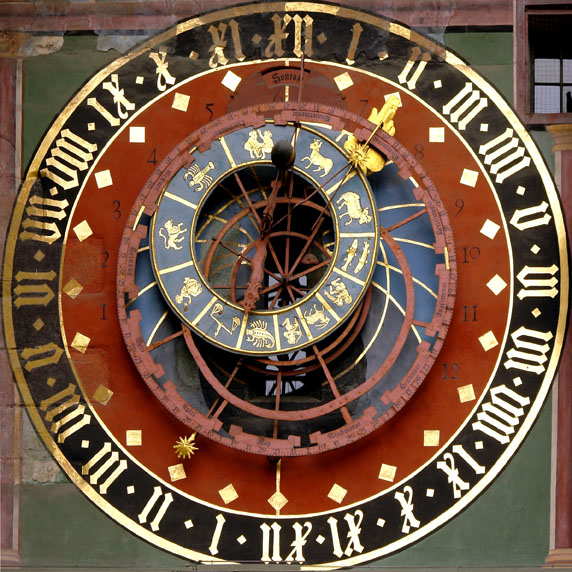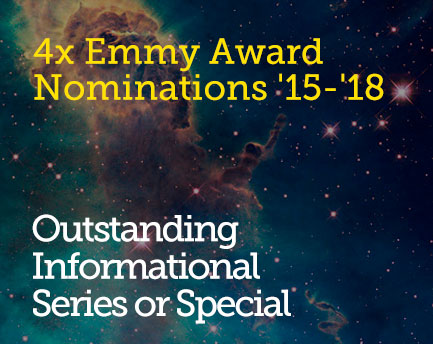July 20, 2012 8:27 pm
Time-Telling Oysters and Leap Seconds: Neil and the Nerdist Meet the Time Lords
When I found out that StarTalk was going to be one of the shows on Chris Hardwick’s new Nerdist Channel on YouTube, I was pretty stoked. You see, I’m a fan of The Walking Dead on AMC. After every episode, Chris Hardwick hosts a show called Talking Dead, where he and his celebrity guests discuss the creepy events that just transpired. Plus, of course Chris is also The Nerdist, creator of one of the most popular comedy podcasts of all time.
So I was looking forward to the episode of StarTalk called “Time Lords: The Science of Keeping Time” since Chris was the guest host. Of course, I got much more than I bargained for. Nerdist co-host Matthew Mira was there – and Matt may be one of Neil’s biggest fans in the whole world. And Bill Nye The Science Guy did a minute about time.

Astronomical clock at the Zytglogge tower in Berne, Switzerland. Albert Einstein lived near the Zytglogge when working at the patent office in Berne. While travelling on a tram away from the tower, he thought if the tram were going at the speed of light, the clock tower would remain on the same time, while his own watch would continue to tick – proving time was relative.
I came for the Hardwick, but I stayed for the guests, some very serious time-scientists:
- Anthony Aveni, The Russell Colgate Professor of Astronomy and Anthropology at Colgate University in New York
- Frank Reed, Instructor of celestial navigation at Mystic Seaport in Connecticut
- Robert Seaman, Computer programmer for the National Optical Astronomy Observatories
Talk about some mind-bending stuff, from relativity to time-telling oysters. Professor Aveni, who wrote a book about the Mayan calendar and the end of the world, talks about why the Mayan apocalypse isn’t really as much of a concern as some people make it out to be. Frank Reed, a real-life time lord, discusses how the physics of our world affects the keeping – and the passage – of time. (If you live on the equator, you age more slowly than if you live in Alaska. Really.) And Robert Seaman talks about how long days actually are, and why “leap seconds” are critically important for astronomy and for time synchronization in our hyper-technological world.
Did you know that 23 leap seconds have been added to our calendar since 1972? Or that the entire GPS system will need to be fixed if we eliminate leap seconds? I do now.
If you’re a Whovian, you ‘ll enjoy the Dr. Who references dropped throughout the show, and yes, there is a TARDIS, but don’t expect a serious Who-fest.
But for me, the coolest thing of all about this episode, cooler even than the time-telling oysters, was Neil’s story about how and why Pope Gregory replaced the Julian calendar with the Gregorian Calendar, the most accurate calendar we’ve ever made. (Why so cool? Because when I met Neil, he told me the full story, and so as I listened to Neil tell the story on the show, I started jumping up and down saying, “Neil told me that… Neil told me that.” Luckily, since it was two in the morning, there were no witnesses. And you wouldn’t tell anyone, would you?)
That’s it for now.
Keep Looking Up!
Get the most out of StarTalk!
Ad-Free Audio Downloads
Priority Cosmic Queries
Patreon Exclusive AMAs
Signed Books from Neil
Live Streams with Neil
Learn the Meaning of Life
...and much more

 Become a Patron
Become a Patron

